
16 minute read
BUSINESS
Benelux Business
B U S I N E S S C O L U M N | B U S I N E S S C A L E N D A R | B U S I N E S S P R O F I L E S
56
58
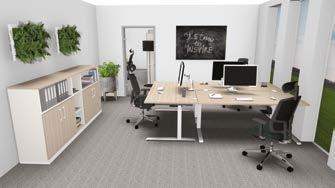
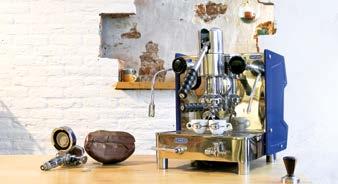
You need to be good at languages
TEXT & PHOTO: STEVE FLINDERS
I asked a German management team recently what competences and behaviours we need for working internationally. The first thing they came up with was competence in foreign languages. But what does this mean?
For them, it meant having an operational level in English. Certainly English is the dominant international language today and is likely to remain so for a while. But is this enough? I think that to be linguistically well-equipped, today’s global citizens need not just their native language and English but another ‘global language’ as well.
A global language is one spoken by lots of people. Google the ten most spoken languages and more or less the same ones come up each time. In addition to English, there is usually Mandarin, Spanish, Arabic, Hindi, Bengali, Portuguese, Russian, French and Urdu, with German, Japanese and Indonesian hanging in there too – take your pick. Any one of them will enable you to do business or simply chat with anything between 150 million and a billion or more people.
There is another dimension to language competence, however, whose effectiveness I learnt from a French banker who audits branch offices worldwide. “Make the effort to learn 15 words and phrases of the local language wherever you go,” he told me, “and it will open doors, help you build relationships, and change your status from tourist to respected visitor.” He has done this in a dozen languages and has gained benefits both professionally and personally as a result. thank you is ‘arigatou’; and my mental image was of a British prince, Harry - ‘ari’ with a French cake - ‘gateau’ on his head. It worked every time. It’s added a whole new surreal and fun dimension to my language learning.
So next time you go to a new country, try memorising the local words for: Thank you, Yes, No, Hello, Goodbye, Excuse me, I’m sorry, How are you?, How much is it?, What is this?, Where is … ?, Can I have the bill, please?, Toilet, Station, and a few others, and enjoy a qualitatively different travel experience.
Like so many lazy anglophones, I’m a poor language learner though my French is not too bad and I know quite a few translations of ‘beer’. I do find memorising 15 words in a new language hard although on a recent trip to Japan, I tried visual association. The Japanese for

Steve Flinders is a freelance trainer, writer and coach, based in Malta, who helps people develop their leadership and communication skills for working internationally: steveflind@aol.com
Business Calendar
TEXT: ANNA VILLELEGER
showUP 2 - 3 February Amsterdam, the Netherlands Taking place at Expo Haarlemmermeer, showUP is renowned for being one of the most inspiring Dutch trade shows for gifts and homeware. The event welcomes more than 350 international exhibitors, focusing on buyers from home and gift stores, concept stores, webshops, department stores and museum boutiques. www.showup.nl
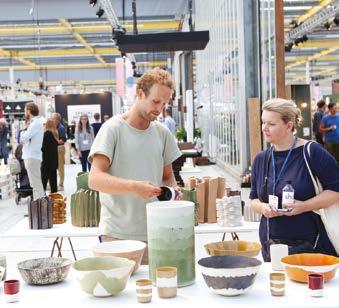
European Testing Conference 2020 6 - 7 February Amsterdam, the Netherlands The European Testing Conference is about getting experts and practitioners together to talk, learn and practice the art of testing. Examining advanced new methods into making testing more effective, this innovative event sees talented practitioners share their expertise. europeantestingconference.eu
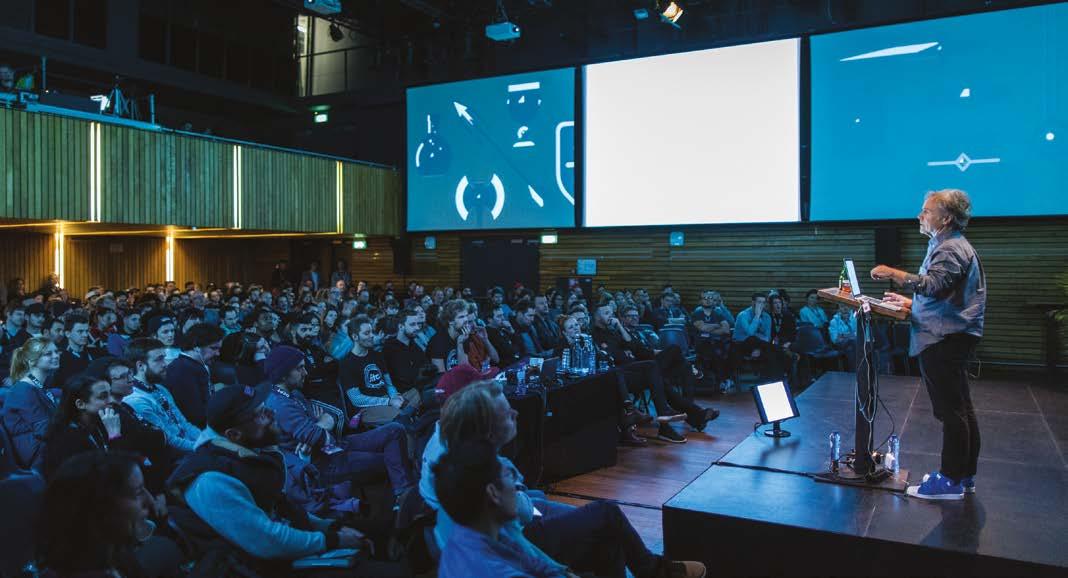
Anido 16 - 17 February Kortrijk, Belgium Now in its 21st edition, Anido has earned its reputation as a unique, professional meeting place for the whole pet care sector in the Benelux and Northern France. Discover the latest innovations at this unmissable event which welcomes everyone from buyers and dog breeders to grooming salons and seed and fertiliser businesses. www.anido.be
FITC. Photo: David Carson
Chocoa 19 - 23 February Amsterdam, the Netherlands Back for its eighth edition, Chocoa brings together stakeholders from the entire supply chain, from cocoa farmers to chocolate consumers. The aim of the event is to increase the market for ‘good cocoa and better chocolate’. Chocoa 2019 hosted 150 stands and 9,000 visitors during all Chocoa events. www.chocoa.nl
FITC 24 - 25 February Amsterdam, the Netherlands Now in its 13th year, FITC returns to Amsterdam to host its groundbreaking design and tech event on the future of innovation, design and much more. FITC Amsterdam features some of the world’s most innovative and inspiring speakers and offers you the opportunity to mingle with those who share your creative passion. fitc.ca
Crafting identity
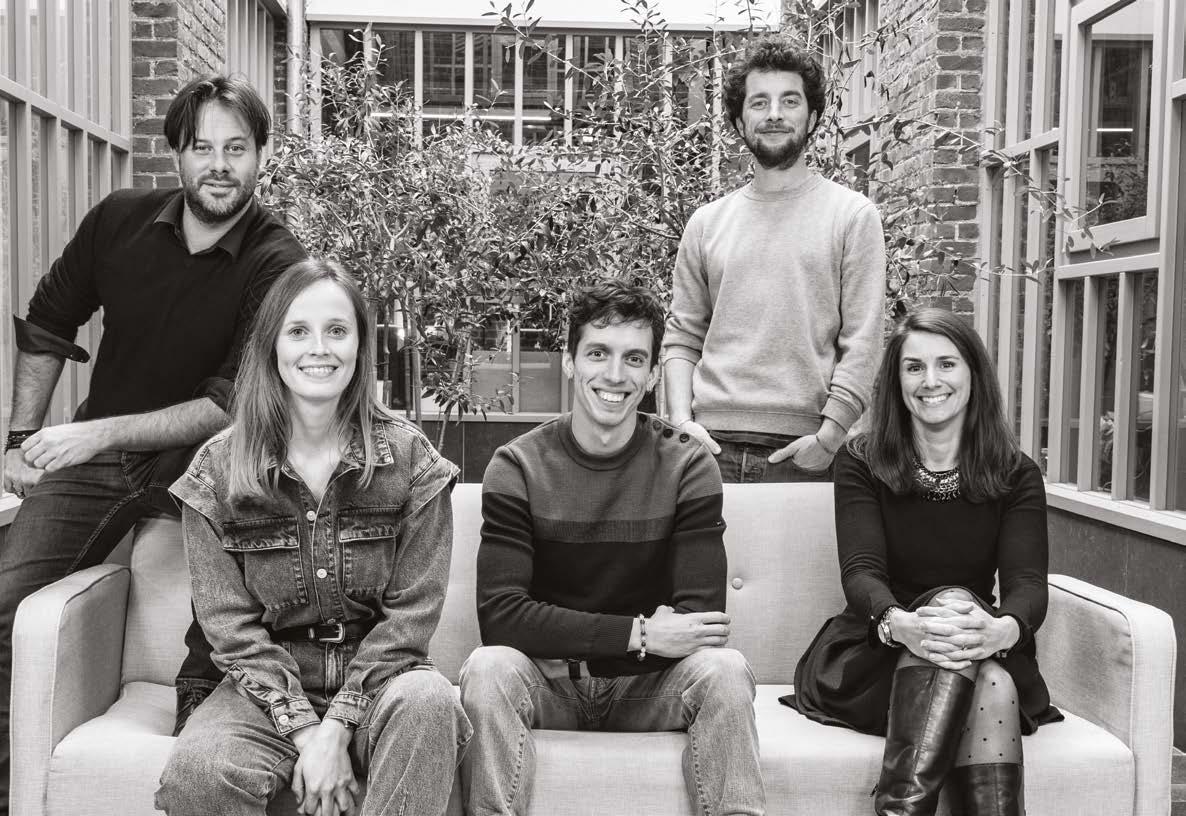
TEXT: PIERRE ANTOINE ZAHND | PHOTOS: FEELINK
Based in Brussels, Feelink is a creative design studio specialising in brand identity conception. From the original concept to brand identity, logocrafting, typography, edition and communication strategy, it offers comprehensive guidance throughout the creative process that allows a brand to identify its DNA and define how it wishes to be perceived. Its founder, François Houtmans, combines a career-long knowledge of visual communication with a modern, futureforward attitude to the philosophy and practice of design. To François, “creativity is intelligence having a good time.” To that end, he has assembled a small-scale team of young specialists who together provide a comprehensive, step-by step accompaniment that paves the way from a simple idea to a powerful visual product. Below, François and his team share a few thoughts on the art of creating brand identity out of shapes and symbols.
What is meant by the ‘visual identity’ of a brand? Creative team: It is the image that a business, an institution or an organisation presents to its audience. It contains its values, its energy and its ambitions. Visual identity is the whole of its different graphic, auditory, and sensory elements, put together in a cohesive way. through keywords that define the brand’s DNA as well as its purpose. From these keywords, we elaborate colour codes and shapes to match the clients’ purpose. We use these elements to ‘dress’ the brand, making it identifiable with the target audience.

François: A brand’s visual identity allows us to recognise it at first glance, thus to identify it and assimilate it to the environment in which it appears. It is articulated
The world of design is vast. What do you find particularly compelling in the conception of a brand’s image? Creative team: Being able to create, through design, a language both personal and distinctive, in order to foreground the client’s history, the essence of the brand. To do this thoughtfully and successfully is a fascinating challenge.
François: Brand image conception must allow cohesion between the brand, the business behind it, and the values it represents for the consumer or B2B client. The goal is to gather and select what arguments will be presented to and foreground its powerful aspects. The message should be simple, clear and specific, and its repetition should enable brand assimilation and recognition in the audience. Thus the message is the brand’s signature, and it is often the simplest elements (a shape, a colour) that have the most impact.
This research work is both essential and fascinating: it is a building block for the dialogue between the design team and the client company. It is a vital step because there must be balance and mutual understanding between the two.
What are some key factors to successful communication? Creative team: When communication relies on a strong concept, tells a story, and passes on the brand’s philosophy, it succeeds. It should be universal, understandable by all, and easily memorisable. It is important to define the mission, the vision and the values of the brand in order to render them as faithfully as possible. Beyond this, clarity and efficiency are also two main aspects.
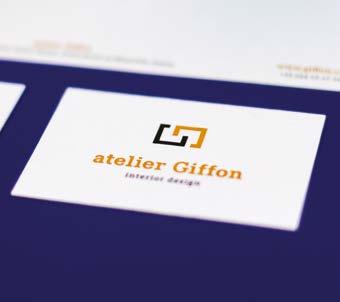
A good logo should allow the brand to ‘speak’. Do you consider design to be a language? Creative team: Design is a visual medium, through which emotions, ideas and values can be perceived on an instinctive level. Playing on collective codes, it allows us to express a particular idea. Various typographies, shapes, and arrangements all elicit a different sensation that the audience may not be able to express, but that it will understand unconsciously.
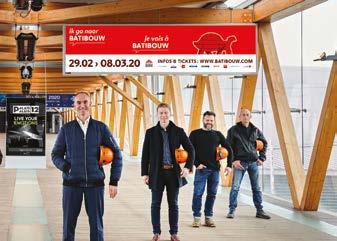
François: Design is evidently a language, but also the medium through which a brand can synthesise what it stands for. Beyond the logo, however, the name it
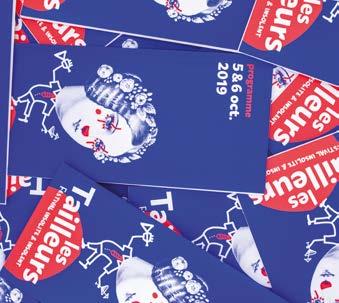
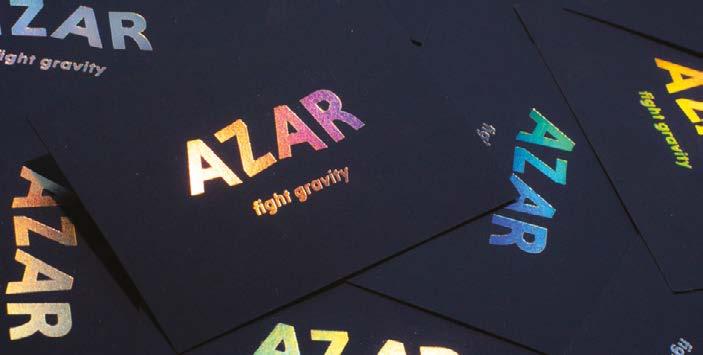
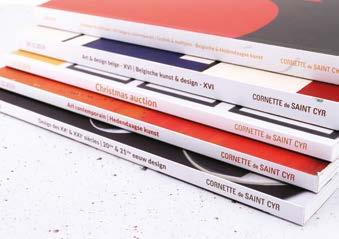
self is very important, through what it symbolises and the references it makes.
Would you see yourselves more as being creators, in that you create designs, or as mediators, between brand and consumer? Creative team: We are mediators in that we often help our clients formulate the message that they wish to send, through workshops and meetings. We accompany them in their strategic choices, and facilitate the establishment of their brand.
However, we are creators in that our job is to create shapes that will send a message, and bring out an emotional response.
To you, a dream project would be... Creative team: We would love to work on a project that is aimed at a wide audience, is thought-provoking, and stirs curiosity around it. We would like it to benefit others, whether it is linked to education or to a specific cause. We also find it interesting when a project shows a lot of originality, which allows it to demarcate itself and to play a social role.
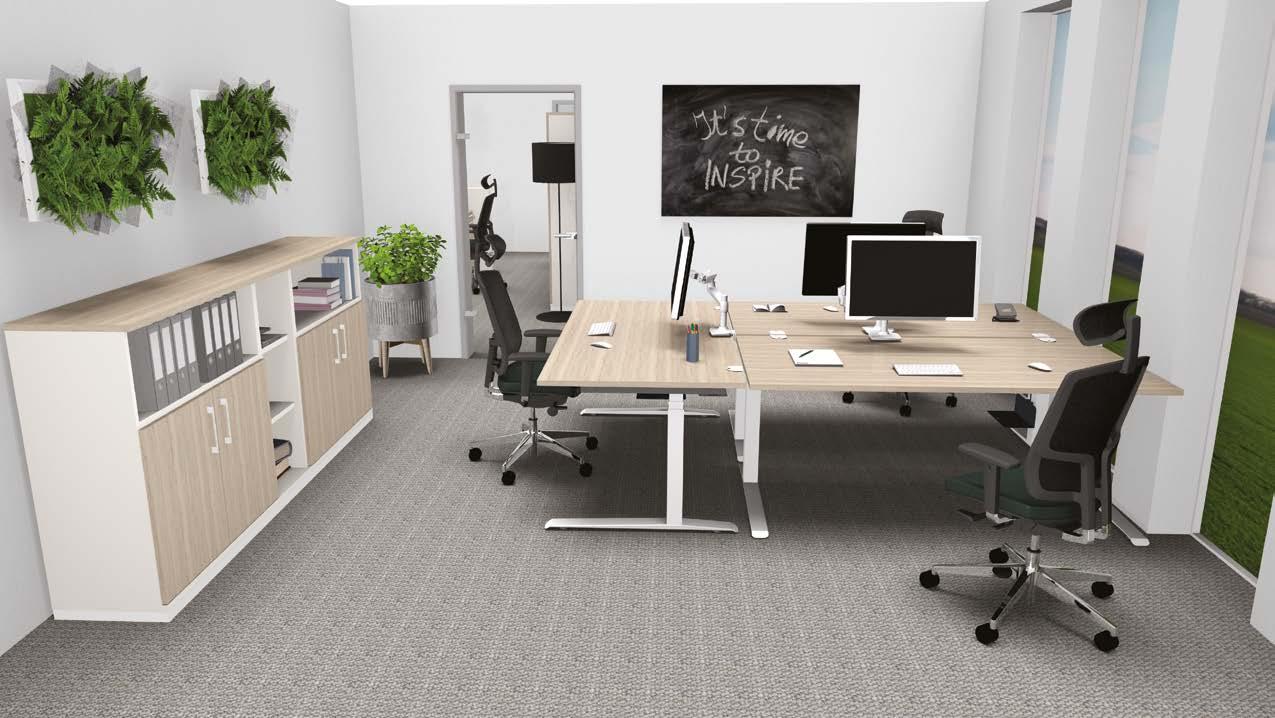
TEXT: LAUREN WALKER | PHOTOS: SCHÄFER SHOP
On average, a full-time employee in the EU spends a quarter of their time every week working. The quality of this environment and its dynamics are therefore deciding factors when considering the standard of working life. Improving these factors is where Schäfer Shop comes in. For over 40 years, the company has specialised in producing modern office furniture and office equipment to benefit its clients’ businesses by delivering quality products and tailored services.
Schäfer Shop has become the go-to place for successful firms all over Europe, as it sells everything workplaces will need. The company offers individual necessities for office life, like the comfiest desk chairs and the most practical storage spaces, as well as catering trollies and coffee in bulk — all in one place. With over 100,000 products on offer, it caters to every type of workplace.
Service like no other Aside from the fact that it produces all its own furniture in Germany, the store’s specialised ‘Premium Service’ is by far the unique factor which makes this firm stand out from other, similar businesses. It assists businesses in creating the ideal workplace by putting the individual needs and wishes of clients and their employees at the centre of the designs and the furnishing of offices and warehouses.
Everything is taken into consideration when designing your next workspace, from the floors and the ceiling to the colour of the walls to suit your branding, the acoustics of the office and ergonomically friendly furniture. At every level, Schäfer Shop strives to create a motivating and engaging atmosphere during every renovation, tailored to every individual business, whilst guaranteeing planning monitoring and support during every phase of the process and keeping costs to a minimum.
Working together with construction specialists, architects, CAD designers and account managers, all on location for your convenience, the team develops customised design concepts for all workplaces; creative, personalised and innovative from planning, implementation and construction. At every step of the way, a team of motivated professionals will help ensure the project runs smoothly, allowing you to implement positive change without having to deal with the stresses.
From idea to realisation From the first meeting, Schäfer Shop offers its clients extended advice, starting by understanding the spaces they are working on and recognising the characteristics and what the possibilities are. The team’s experts can measure the most complex ground plans to ensure every square metre will be used effectively.
Following extensive talks with clients, the designers and architects then create a functional concept to modernise the workplace, taking into account the different functions for every space and how to optimise their uses, whether they are being used creatively by people to share ideas, or offer peace and tranquillity for individuals to focus on their work. By creating 3D displays of the future workspaces, clients can visualise and experience the project before it has been implemented, allowing them to make changes at the most pivotal stage.
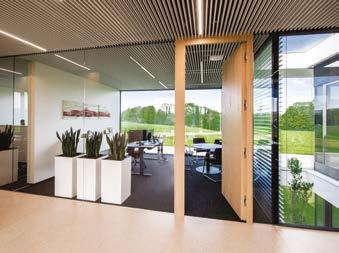
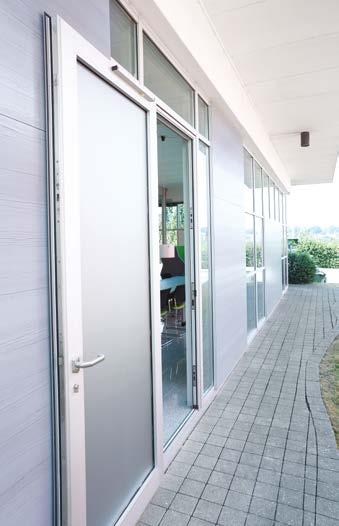
At the core of every project lies the ‘look and feel’ of workspaces, and Schäfer Shop always ensures the result suits its client and the business’ identity. By creating indi
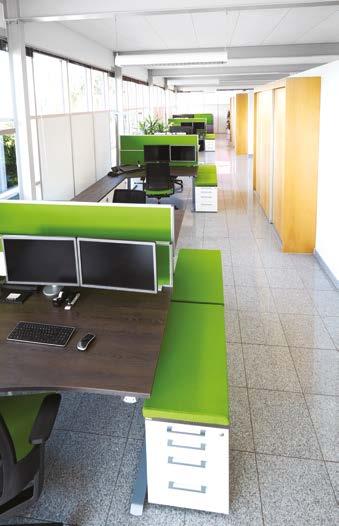
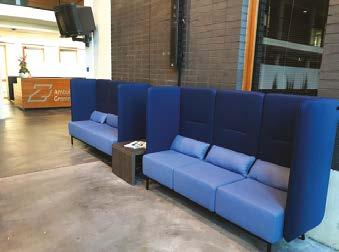
vidual and personalised concepts in which businesses can recognise themselves, the interior of the workplace further enhances productivity and the sense of personality.
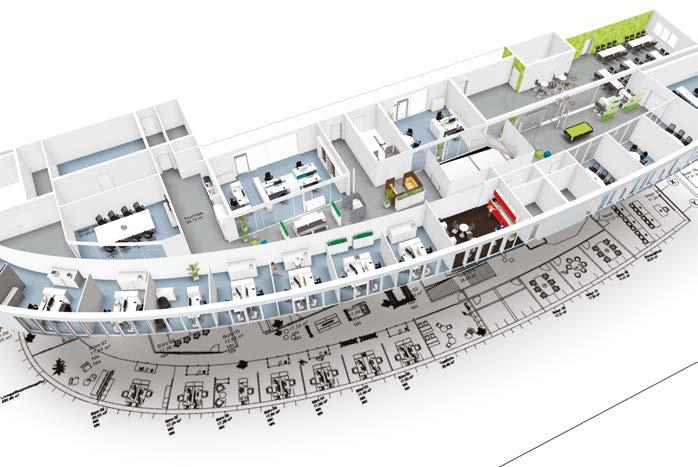
Once all plans have been drawn up, this vision becomes reality. During the entire implementation phase, Schäfer Shop’s team is the client’s partner, and takes full responsibility for the coordination of the planning, installation and the assembly of the workspace, from offices and reception areas to canteens and conference rooms.
Erik van der Harst, Schäfer Shop’s business development manager, highlights that there are so many possibilities for what workplaces can become: “Often, our clients are so surprised by what we are able to create with existing spaces, and how we can tailor our services to meet their needs.”
Following years of expertise, a strong knowledge in technical construction and by recognising the importance of transparency and trust, Schäfer Shop is able to guarantee the best service for all its clients, whether it is creating a dozen office chairs tailored to special requests or redesigning your entire office, it will always help find a solution for your problem.
For more information on how to modernise and improve efficiency in your workplace, visit: schaefer-shop.nl
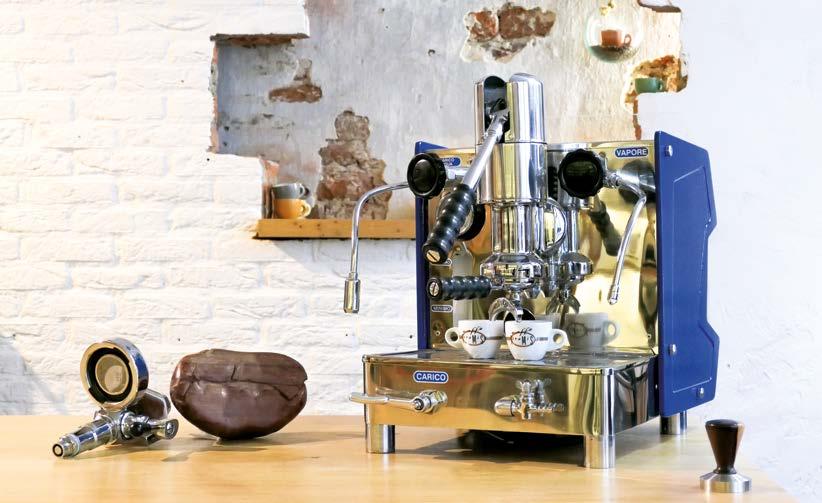

Selling passion, craft and feelings
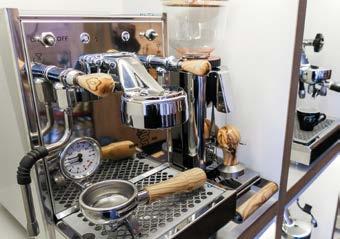
Family, passion and authentic espresso – these are the elements that make Caffè Tiramisu. Starting out as an Italian delicatessen shop in 1988 but soon narrowing down to just coffee, owner Sandro Mascilongo built on his father’s Italian roots to create a family run business that is all about passion, craftsmanship and the perfect cup of coffee.
Over the last 30 years, Caffè Tiramisu have handpicked the 50 different espresso machines on offer across their stores today. While they do sell fully automated machines as well, controlled simply by the touch of a button, Caffè Tiramisu’s passion lies with the authentic Italian equipment. The technique behind these espresso machines has been in development since the early 1900s and charac
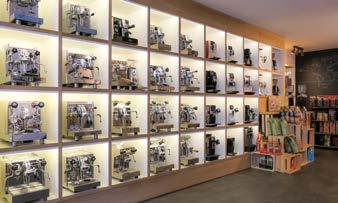
TEXT: ELINE JOLING | PHOTOS: TIRAMISU
teristic components developed in the ‘60s are still featured on new equipment to this day. Although systems like the drip or percolator are increasing in popularity again, the original Italian espresso machines will always be on top. As the equipment is operated by hand, the drinks can be tailored to preference - providing you with not just a cup of coffee, but a personal experience full of authenticity and nostalgia.
“The authentic espresso, the real craft, comes from Italy,” says Mascilongo’s son Ruggero. “In our opinion they are a step ahead of everyone else simply because there is generation upon generation of coffee roasting history.”
Unsurprisingly, Tiramisu collaborate only with Italian, artisan coffee factories. 40
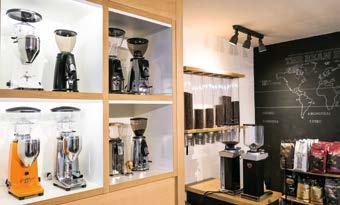
different coffee melanges are currently on offer, all made in craft factories with interesting stories or techniques, including ones who still brew over wooden fires. Caffè Tiramisu also offers nine of their own melanges, and produces private label brands for their customers – all roasted in the Arabicaffè factory in Catania, Sicily since 1991. “We’ve been working closely with that factory for so long now,” says Ruggero, “the owner is like family, and we are part of his.”
Aside from coffee, Tiramisu prides itself in its service to its customers. From maintenance and repair, to sending customers home with new samples to try, to even offering personal barista training on newly purchased machines, so the ins and outs of coffee making are mastered when the first steaming cup is freshly brewed at home. At Caffè Tiramisu, it’s about more than just selling coffee equipment, it’s about welcoming people into the coffee family and passing on their passion and love for artisan espresso.
Hélène Propsma and Erik Meijer.
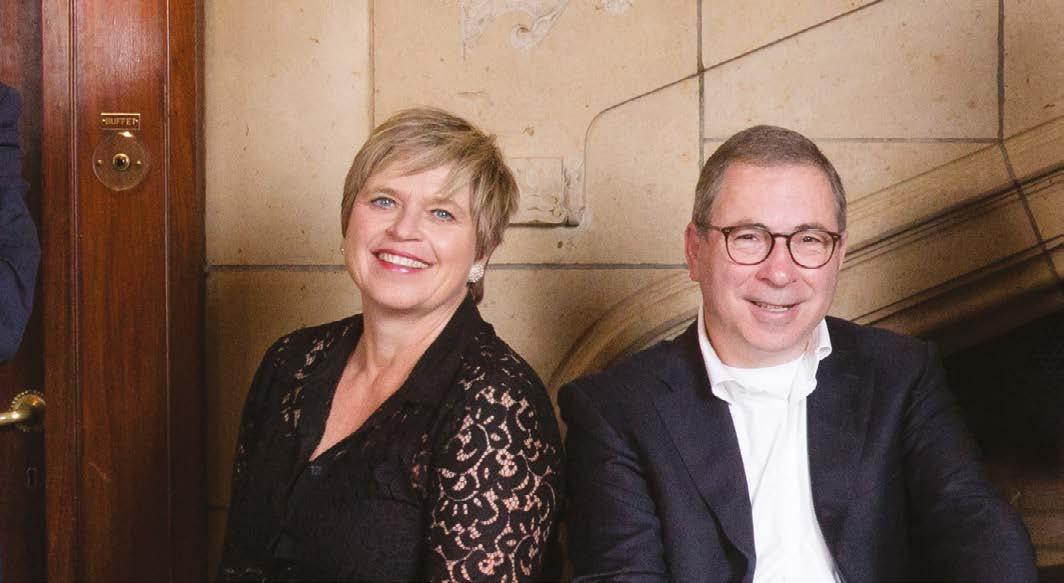
TEXT: MICHIEL STOL | PHOTOS: ABC BUSINESS COACHES
At different stages in your career you can reach various crossroads; early on, when you have difficulty making (life) choices, or at a more mature age, when you wonder how to stay relevant upon retirement. Having a coach by your side who understands the life — and work — phases people go through, can help you find inspiration and direction again. “If it was up to us, coaching would always be preventive, rather than curative,” say Hélène Propsma and Erik Meijer of ABC Business Coaches.
ABC Business Coaches is an association of six business coaches, from a variety of disciplines. “We are all independent entrepreneurs and by working together this way, we counsel, challenge and educate each other constantly, to be the best coach for our clients,” explains Propsma. “How can you be a good coach, if you are not open to being coached and receiving feedback yourself?”
For Propsma, a good coach is someone who does more than just coaching. “You need to be experiencing life, doing other things, learning from diverse experiences. I consult on diversity and inclusion projects for a variety of clients, which gives me a broader understanding of the differences between people and the challenges people face at each stage of their life and career. Besides this, I’m a voluntary board member for a business club.” For ex-banker Meijer, his focus is also on sustainable employability, besides being a volunteer treasurer in several societies.
Providing the tools and finding direction Each partner of ABC adheres to the same philosophy, Meijer continues: “A coach is someone that listens, lets you look in the mirror and helps you deal with impediments and challenges: is this the ‘stage’ (job) you still want to be on, or do you need to look for a new ‘theatre’ (organisation)? A coach provides the tools and encourages you, so that you can make the decision. Sometimes that means just asking a few questions and listening.”
Individual experience and a shared philosophy of encouraging awareness, understanding transformation and empowerment, is what makes ABC Business Coaches unique. “We give people new perspectives and let them experiment with new behaviour to reach their goals. Those goals become clearer along the way when a coach accompanies you for a certain amount of time, guiding you to become the best version of yourself,” they conclude.
You are welcome at: abcbusinesscoaches.nl

